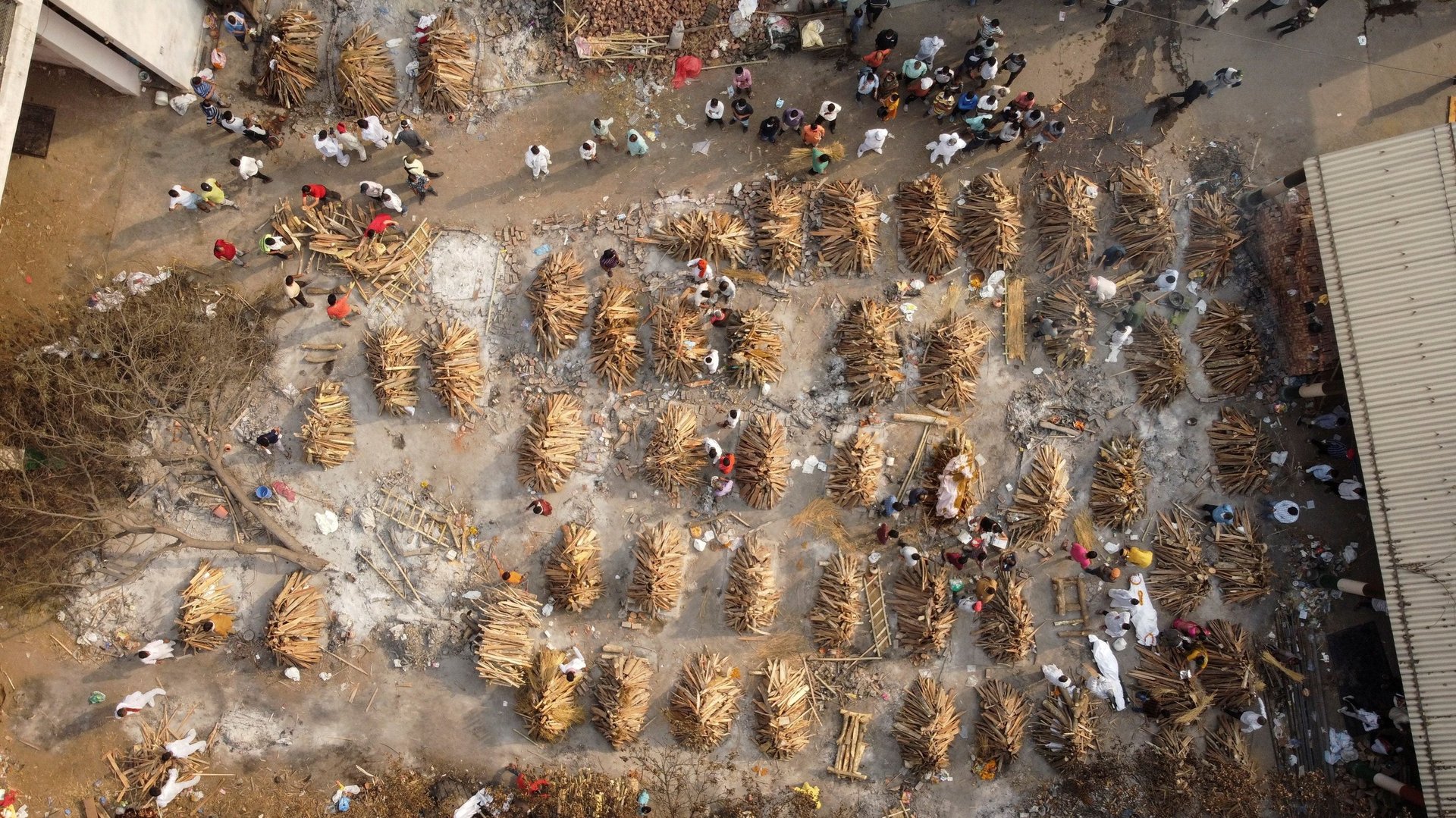India’s reputation is taking a battering in international media
As the Covid-19 crisis worsens in India, international media coverage of the role that its government has played in this tragedy is proving the old PR adage wrong—all publicity is very much not good publicity.


As the Covid-19 crisis worsens in India, international media coverage of the role that its government has played in this tragedy is proving the old PR adage wrong—all publicity is very much not good publicity.
Since early April, a second wave of coronavirus has turned India into the epicenter of the pandemic. The country reported nearly 361,000 new cases of Covid-19 yesterday (April 28), the global record, and 3,293 deaths—although there’s every reason to believe that the true numbers are much higher. The reasons for this surge are complex: Egged on by their government, people let down their guard in the beginning of the year, while variants of SARS-COV-2 may have helped the virus spread faster and wider.
Now, in a blow to India’s international reputation, overseas coverage of the crisis is multiplying, including from Indian journalists.
India faces global criticism
In The Atlantic, Vidya Krishnan writes that while it would be too “easy” to lay the blame for this crisis entirely at the feet of Indian prime minister Narendra Modi and his Bharatiya Janata Party (BJP), “much can be attributed to his government”:
“After the virus landed on India’s shores, he imposed a brutal shutdown—one that largely hurt the poorest and most vulnerable—without consulting the nation’s top scientists, yet did not use the time to build up the country’s health-care infrastructure…and rather than taking advantage of low case counts in prior months, his government offered an air of triumphalism, allowing enormous Hindu religious festivals and crowded sporting competitions to go ahead. Modi’s ruling Hindu-nationalist party has been accused of hoarding lifesaving drugs, and has held mass election rallies cum super-spreader events that would make Donald Trump blush.”
This kind of bitter obloquy can be found in the editorial pages of many global publications. In the UK, the Financial Times warns that unless Modi takes accountability for his role in this crisis, “more funeral pyres will burn across his nation.” In France, daily newspaper Le Monde (link in French) finds that Modi’s “lack of foresight, arrogance, and demagoguery are evidently among the causes of a situation that now seems out of control.” In the US, The Washington Post calls the second wave “as avoidable as it is tragic, brought on by relaxing restrictions too soon.”
India’s free speech crisis
The wave of critical global coverage has sparked a sort of secondary crisis in India—one of free speech, as the Modi government seeks to clamp down on negative coverage at home and overseas. After an article published in The Australian blamed India’s crisis on Modi’s “hyper-nationalism and bureaucratic incompetence,” the Indian High Commission in Canberra wrote the newspaper’s editor-in-chief a letter that called the article “malicious and slanderous,” and urged him to “refrain from publishing such baseless articles in the future.”
The Indian government also wants social media companies to delete some posts that are critical of its handling of the crisis, describing them as misinformation. In an exchange with the BBC’s Emily Maitlis, BJP spokesperson Gopal Krishna Agarwal said: “If you create panic out of the crisis, every government has a right to control the panic.”
Meanwhile, Facebook temporarily blocked posts containing a hashtag calling on Modi to resign. A spokesperson said it was done by mistake, and “not because the Indian government asked us to.”